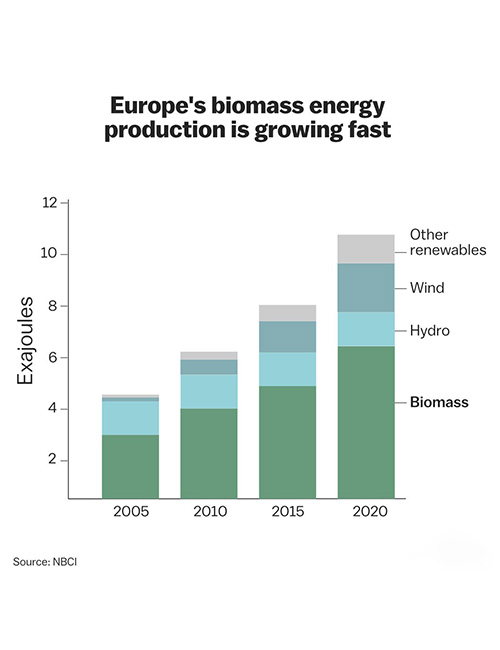We’ve been taught that trees store carbon and that’s good for the planet. However, the recent interest in biomass could mean that using wood as a renewable source of energy might negate all the benefits of forests.
Search the internet and you will learn that “Biomass is fuel that is developed from organic materials, a renewable and sustainable source of energy used to create electricity or other forms of power. In biomass power plants, wood waste or other waste is burned to produce steam that runs a turbine to make electricity, or that provides heat to industries and homes.” Wood pellets are a biomass product and we know them domestically as wood briquettes used in ‘Coonara’ type heaters.
The Australian Government Renewable Energy Agency (ARENA) states, ‘Bioenergy offers the potential for considerable economic benefits, including increasing Australia’s energy security and reducing greenhouse gas emissions,’ but is this a correct assessment of what using wood to create energy achieves? Saul Elbein reports on land, energy, resources, and the struggle over who controls them. Saul says, “Millions of tons of wood from American forests are being shipped across the Atlantic each year and burned in power plants in countries like the UK and the Netherlands, in the name of slowing climate change. As they steadily wean themselves off coal, European Union nations are banking on wood energy, or biomass, to meet their obligations under the Paris climate agreement.”
In 2009, the EU committed itself to 20 percent renewable energy by 2020 and put biomass on the renewables list. A sudden market for waste or poor-quality wood popped up and by 2014, biomass accounted for 40 percent of the EU’s renewable energy, by far the largest source. By 2020, it’s projected to make up 60 percent. REN21 (journal) reported in 2017 that renewable energy contributes 19.3% to humans’ global energy consumption. A little bit of maths establishes that solar; wind; hydro and all other sources makes up 11.58% of global energy consumption so its little wonder biomass is still on the EU’s list.
Biomass is considered both renewable and carbon neutral, and a way to keep an economy built on burning fossil fuels humming along but some scientists and policy activists are now questioning this, saying that biomass energy rests on deceptive accounting. Rather than being carbon neutral, “Biomass is liquidating millions of tons of irreplaceable carbon stocks during a climate crisis already out of control.” Scientist Bill Moomaw is a professor emeritus and co-author of the Nobel Peace Prize winning Intergovernmental Panel on Climate report; a co-author of four additional IPCC reports and an expert on carbon sinks. He said, “Burning biomass means quickly dumping more carbon into the atmosphere at exactly the point we need to begin rapidly drawing it down.” Scientists are calling for an end to biomass energy and in January of last year, Moomaw joined a group of nearly 800 scientists from across the world in petitioning the EU Parliament to end its support for biomass.

